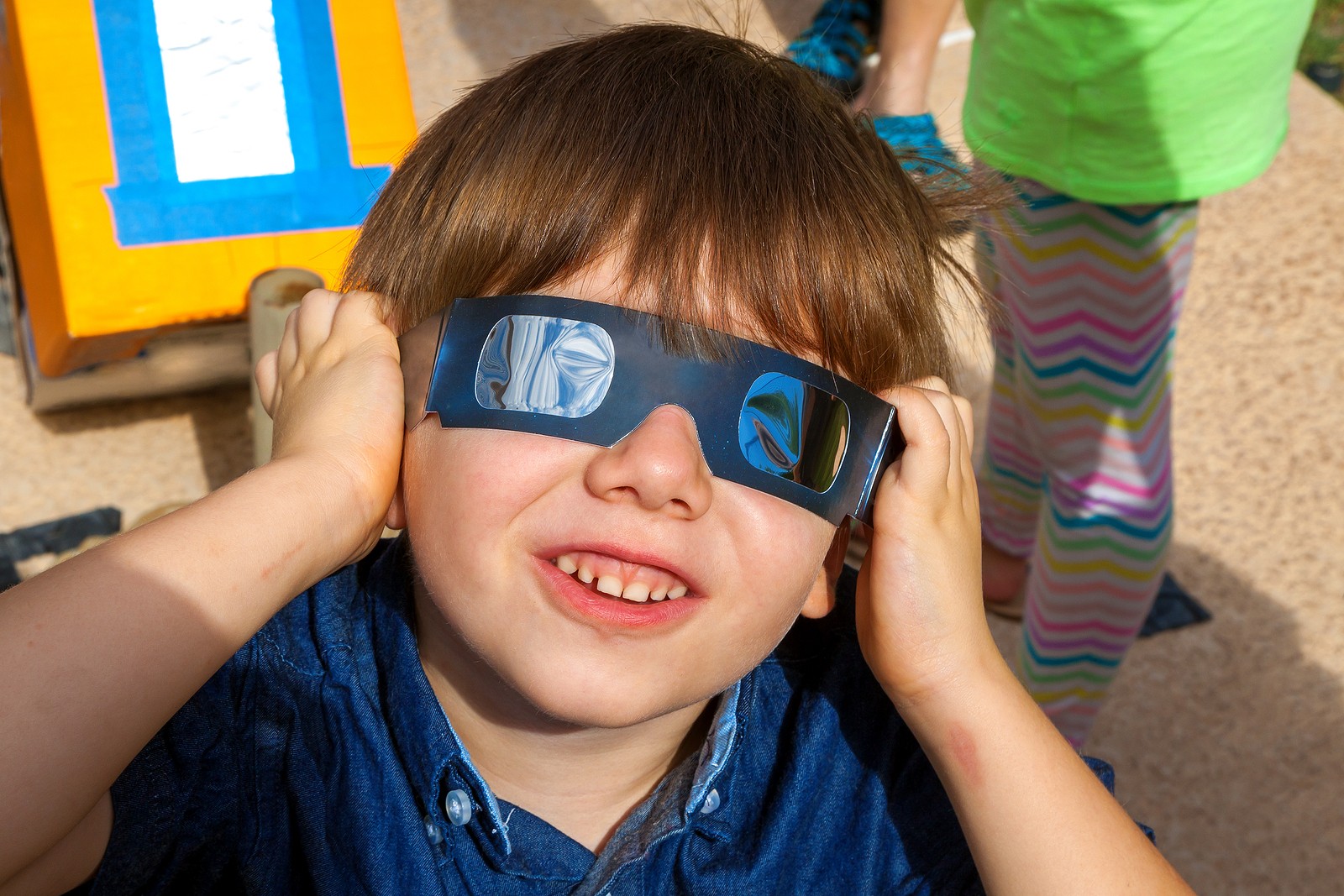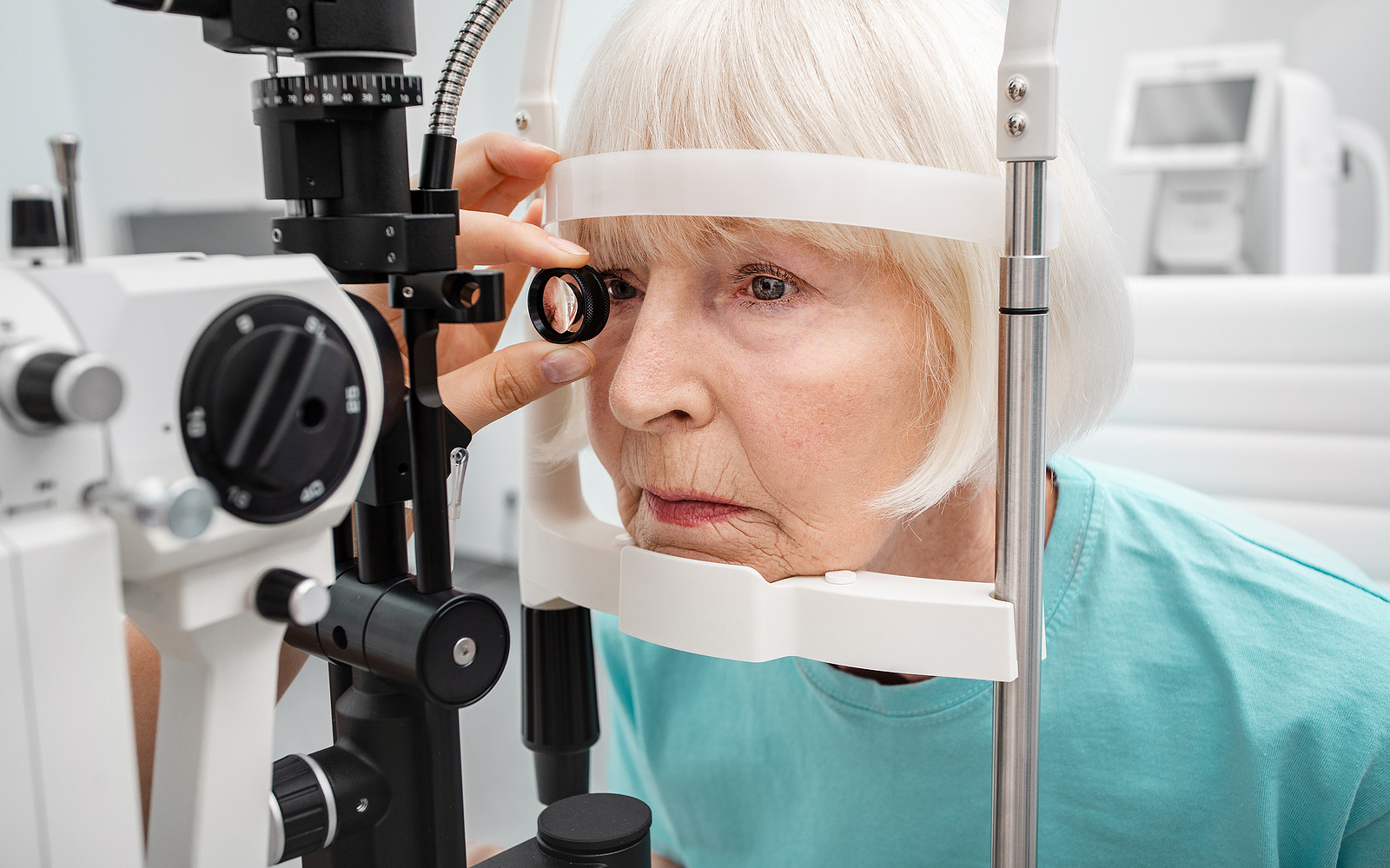How to Safely View a Solar Eclipse in Arizona

Viewing an eclipse gives you a rare opportunity to witness one of the wonders of nature. On June 10, 2021, an annular solar eclipse will hide the sun and expose its atmosphere, called a corona. Residents of North America, Europe and Asia can witness the eclipse. While you watch the moon’s shadow darken the sun, make sure to protect your eyes from damaging solar rays. Our eye doctors in Mesa and Chandler explain why it’s dangerous to look at the sun directly followed by tips for safely viewing the eclipse.
How Can an Eclipse Damage My Eyes?
Did you know the sun can burn your eyes as well as your skin? If you look directly at the sun, ultraviolet light can damage your corneas. Known as photokeratitis, or snow blindness, this condition may cause temporary or permanent damage.
Other eye damage from UV exposure includes:
- Cataracts
- Pingueculae (non-cancerous growth on the eye)
- Macular degeneration
- Pterygia
To avoid damage during a solar eclipse, follow the tips below to protect your eyes. If you do notice vision changes following the eclipse, contact your ophthalmologist right away.
What Is a Solar Eclipse?
A solar eclipse involves a rare occurrence when the moon passes between the earth and the sun. This blocks sunlight and casts a shadow on earth, and the sun’s outer atmosphere appears as a halo around the dark shape of the moon. While the spectacular event always draws a lot of attention, it’s important to protect your eyes by not looking directly into the sun.
Impact of Solar Eclipse on Your Eyes
Without the proper protection, looking directly at the sun can cause retinal burns, referred to as eclipse blindness or solar retinopathy. Exposure to the sun’s UV rays can destroy the retinal cells at the back of your eye. This interferes with how your eyes communicate with your brain and can cause temporary or permanent damage. Since you feel no pain with this condition, it may take several hours or days to realize you have impaired your vision.
Make an appointment with one of our eye doctors in Mesa or Chandler if you notice the following symptoms:
- Loss of central vision
- Altered color perception
- Distorted vision
Follow the tips below to protect your eyes.
Tips to Watch the Solar Eclipse Safely
With the right safety equipment, you can protect your vision and still enjoy the solar eclipse. Technically, the moment of total eclipse blocks out the UV rays that can harm your eyes. However, the total eclipse only lasts for a short time. It’s difficult to time exactly when the sun will begin to emerge from behind the moon. Therefore, it’s important to protect your eyes during the entire viewing.
Here several tools you can use to view the eclipse:
- Pinhole projection: Make a pinhole in a piece of cardboard paper. Then, line it up with the sun so that you can see the sun’s reflection on another piece of paper.
- Welder’s glass: Number 14 welder’s glass protects your eyes from UV rays.
- Mylar filters: Use mylar plastic sheets to make safe eclipse vision glasses.
You can also view the eclipse at a nearby planetarium or on television. However, do NOT watch it from your smartphone or camera view finder. This can still damage your eyes.
Ophthalmologist in Mesa and Chandler
If you have any other questions about safely viewing the eclipse, contact your ophthalmologist for more information. At Swagel Wootton Eye Institute, we value your eyesight and encourage you to make an appointment with one of our experienced eye doctors.
Contact us for information on cataract and LASIK surgery in Mesa and Chandler or to schedule an eye exam today!
[DISPLAY_ULTIMATE_SOCIAL_ICONS]









